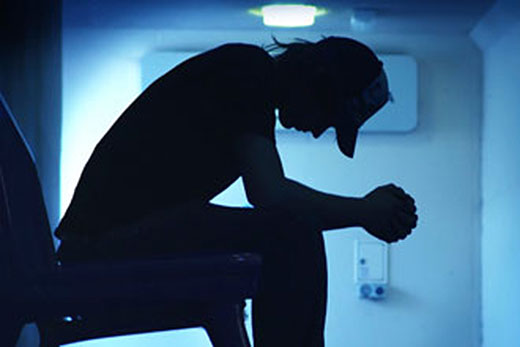The number of people who took their own lives in the Bay of Plenty has dropped to 27 suicides reported in the 2013/2014 year.
This is compared to the 31 people who committed suicide in the 2012/2013 year.
The number of people taking their own lives in the Bay of Plenty has dropped, according to the latest figures from the Chief Coroner.
Nationally, suicide figures fell to 529, but the figure remains 'stubbornly high and disappointingly consistent”, says Chief Coroner Judge Neil MacLean.
Judge MacLean this week released the annual figures for the year to June 30, 2014, with 529 suicides being the lowest recorded to date – only by two however – since the annual coronial figures first started in 2007/2008.
In the 2007/2008 year, 20 suicides were recorded in the Bay of Plenty. This was followed by 41 self-inflicted deaths the following year – the highest in record for the Bay.
'While it's encouraging to see a slight drop in numbers, the overall rate is still stubbornly high and disappointingly consistent,” says Judge MacLean.
'This year's numbers have moved in the right direction but not by much. In spite of this, it's important we focus on the positives and there are some we can take from the statistics.”
Youth suicide numbers – for those aged under 24 – are significantly down from last year with 110 suicides compared with 144.
'We've also seen the lowest number of suicides in the 15 to 19-year-old cohort in the last seven years with 46, which is down 17 on last year and 34 the year before.
'The drop in teen suicide is good news. These are the some of the toughest and most tragic cases coroners deal with.”
Judge MacLean says there has been a lot of effort, both nationally and at community grassroots level, to responding to the challenges posed by youth suicide.
'I'd like to think the drop is a result of this.
'This includes the development of a co-operative interagency arrangement whereby Coronial Service staff send a notice in near real-time through a secure link to the Ministry of Health of any suspected suicide. This triggers a prompt and informed response, particularly when it involves a youth suicide.
'It may be this, coupled with an extensive growing awareness and interest among local communities seeking information and guidance about the phenomenon of suicide, that is starting to bring the youth suicide numbers down. But only time will tell.”
Another key observation from this year's statistics is the rise in suicides among older people. The number of suicides recorded in over-60 year olds went up from 75 in 2012-13 to 97 in 2013-2014.
'The rise in older people taking their own lives is something I highlighted last year, and this trend has continued – particularly for the above-80-year-old age cohort.”
Associate Health Minister Peter Dunne says addressing the complex and challenging issue of suicide requires everyone to work together: communities, whanau, families and individuals, government agencies and NGOs.
He says the whole of society has a role to play in reducing the number of deaths by suicide.
Last year saw the release of the New Zealand Suicide Prevention Action Plan 2013-2016 through which an additional $25 million was allocated over 4 years to address the issue.
This 30-point action plan is the next step in the Government's commitment to address New Zealand's high suicide rates and builds on work and investment in the suicide prevention area, including previous government programmes.
'The Action Plan has been designed as a programme that engages all New Zealanders. It aims to address a range of factors that are associated with suicide including strengthening support for family, whanau and communities and extending existing services, specifically addressing geographical gaps in the coverage of services.”
A wide range of other cross-agency activities also contribute to suicide prevention.
These include: the Children's Action Plan, the Prime Minister's Youth Mental Health Project, Whanau Ora, and Better Public Services.
People needing help can call the below numbers:
Lifeline: 0800 543 354 - Provides 24 hour telephone counselling
Youthline: 0800 376 633 or free text 234 - Provides 24 hour telephone and text counselling services for young people
Samaritans: 0800 726 666 - Provides 24 hour telephone counselling.
Tautoko: 0508 828 865 - provides support, information and resources to people at risk of suicide, and their family, whanau and friends.
Whatsup: 0800 942 8787, noon to midnight)
Kidsline: 0800 543 754 (4pm - 6pm weekdays)
If it is an emergency or you feel you or someone you know is at risk, please call 111



0 comments
Leave a Comment
You must be logged in to make a comment.